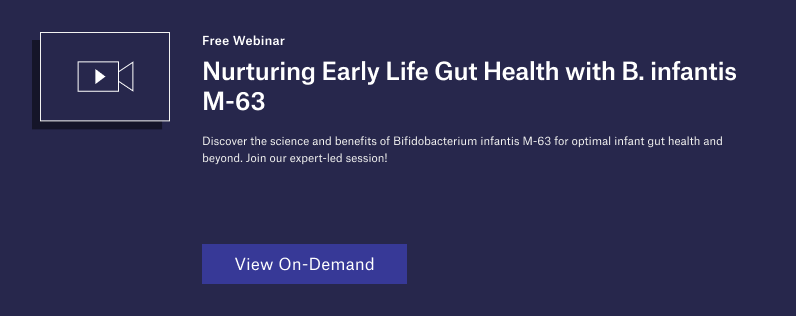
In a market facing the pressures of falling birth rates and evolving consumer expectations, the infant nutrition sector is undergoing a transformative shift. In a recent webinar hosted by GlobalData and featuring Saki Yamashita, marketing strategy manager at Morinaga Milk, the spotlight was placed firmly on one of the most promising developments in early life health: Bifidobacterium infantis M-63. Now available to view on demand, this webinar offers key insights for anyone with a stake in infant health, nutrition, or innovation.
As live birth and baby population figures decline across developed markets, brands are having to rethink how they deliver value, and many have responded by expanding their age brackets and formulating products that support developmental and long-term health benefits. While government guidelines, such as those from the NHS, often suggest that toddler milks are unnecessary, many parents still opt in, motivated by a desire to provide the best possible start in life for their children. This is particularly true when products promise visible advantages to physical development.
Products boasting genuine health benefits, particularly around immune support, gut health are increasingly seen as essential. At the same time, sustainability is becoming non-negotiable, with plant-based alternatives and low-impact packaging playing into decision-making, even in the traditionally animal-based infant formula market.

It is within this dynamic landscape that Morinaga Milk’s M-63 strain comes into focus. A product of the company’s long-standing commitment to bifidobacteria research, M-63 is a human-residential bifidobacteria (HRB) specifically isolated to support the infant gut. In the new webinar, Yamashita explains the science behind this probiotic, highlighting its ability to effectively colonize the gut even in challenging circumstances, including Caesarean births, formula feeding, or where maternal antibiotic use may have otherwise disrupted the baby’s microbiota.
Backed by robust clinical research, M-63 has been shown to increase bifidobacteria abundance from just one week after ingestion, regardless of birth mode or feeding type. Its compatibility with breast milk, in particular, enhances its ability to establish a thriving gut environment. With benefits ranging from increased short-chain fatty acids and immunoglobulin A levels to improved bowel movements, the probiotic plays a foundational role in developing the infant immune system and .
The webinar also touches on the crucial interplay between probiotics (the seed) and prebiotics like human milk oligosaccharides (the feed). M-63’s ability to utilize HMOs means it not only survives in the gut but thrives and helps infants build a protective, resilient microbiota from the earliest stages of life.
Whether you’re a healthcare professional, nutritionist, brand strategist, or simply curious about the science shaping infant health, this webinar provides a thoughtful, data-rich overview of where the industry is heading and how gut health may be key to unlocking a healthier future generation. Watch on demand now and discover how early gut health is setting the stage for lifelong wellbeing.
The webinar is now available on demand. To learn how Bifidobacterium infantis M-63 supports early life gut health and future wellbeing, sign up here



